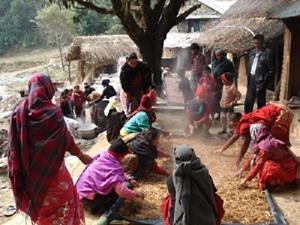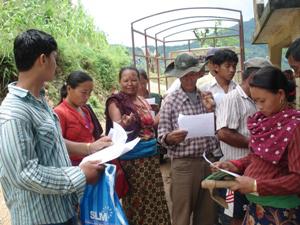Erica Udas
The project focuses on capacity building of local communities to support conservation actions.

Rupa lake is the third biggest lake in Pokhara Valley among the 9 other lakes and is located about 16 km east of the town. It is situated at an elevation about 600 m msl with an area of 115 hectares and average 3 m depth. The lake is rich in biodiversity and has religious value too. It harbours 450 different species of flora and fauna (Oli, 1996). It also provides habitat for threatened plant and animal species such as Otter, Wild rice, White lotus and more than 24 species of indigenous fresh water fish diversity. Likewise, over 200 species of local and migratory birds viz- hawks, teal, goose, egret, kingfisher, cranes etc are reported from Rupa lake (Kazi, 1970, Subedi et al 2002)

But, gradually the condition of Rupa lake is deteriorating day by day due to continued siltation, unregulated infrastructure development, rural road construction, commercial fish farming, use of chemicals, electro-fishing, lake area encroachment and lack of awareness and limited capacity of communities to sustainable management of the lake. These activities accelerate soil erosion enhancing sedimentation (physical threat) and increase water fertility leading eutrophication in lake (limnological threat) thereby increasing unnecessary aquatic weeds growth declining indigenous species and habitat loss of important biodiversity (biological threat). Therefore, the project was designed to address the major causes of wetland degradation and strengthen community’s capacity and to raise awareness for sustainable management of wetland ecosystem. The specific objectives of the project are:
1. To strengthen community capacity and promote community-based wetland resource management for conservation and sustainable use;
2. To create awareness amongst target groups about the importance of wetland biodiversity management for livelihoods options.
The project basically focuses on capacity building of local communities to support conservation actions. Various activities will be carried out viz- lake cleaning, habitat conservation of floral and faunal species, plantation, awareness programs, alternative income generation activities (like bee-keeping, organic farming, mushroom cultivation) for livelihood of poor, marginalized and wetland dependant communities through local people participation. A special attention will be given to women and school children and mobilize them in wetland conservation and awareness programs.